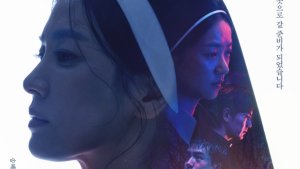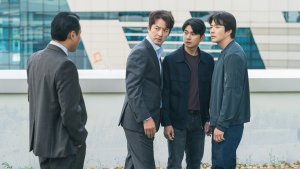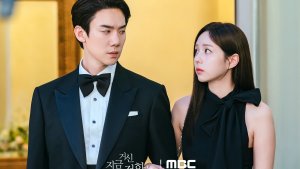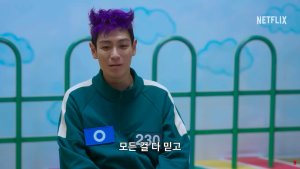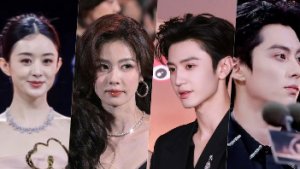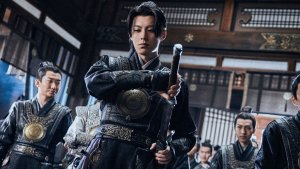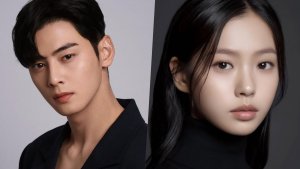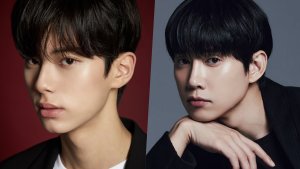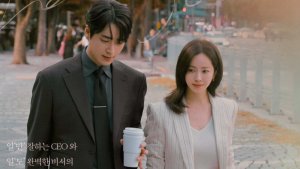 'Love Scout's production team issues statement regarding the controversy surrounding director Ham
'Love Scout's production team issues statement regarding the controversy surrounding director Ham
On September 11, Jung Hae In, currently the most buzzworthy actor starring in Love Next Door, sat for an interview with local reporters for his upcoming action K-movie I, the Executioner, which is set for domestic release on September 13. During the interview, he shared his Cannes experience with his mother, discussed how he portrayed his villainous character in I, the Executioner, acting with Hwang Jung Min, and more.
Jung Hae In began by saying, "Because the previous installment Veteran did so well, I felt a bit of pressure in joining the [movie] series. It would be a lie to say otherwise." "However, I didn't feel any pressure regarding the character. That's because the nature of the character is entirely different from the previous one [played by Yoo Ah In in Veteran]. Once I stood in front of the camera, I didn't feel any pressure at all and was able to focus solely on acting."
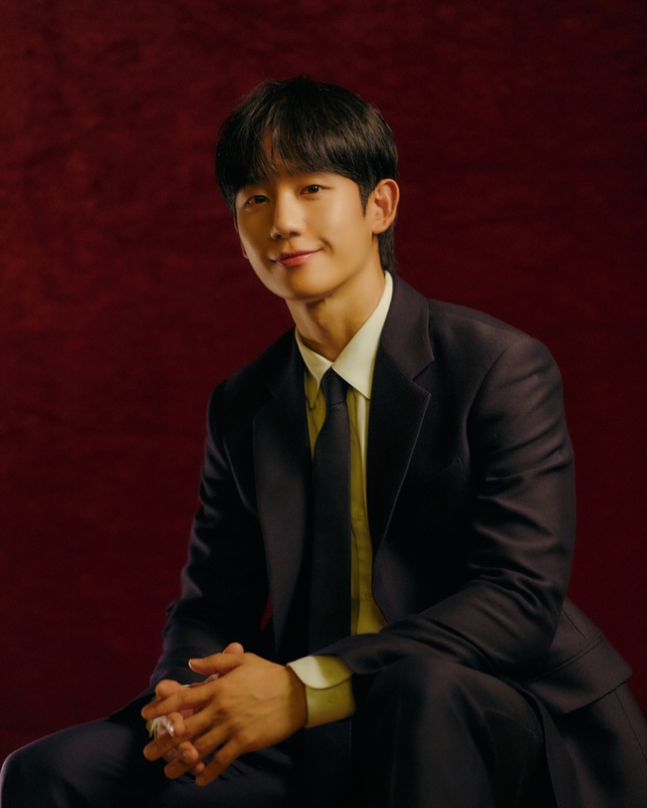
The actor also revealed that it was the first time he agreed to a role without even reading the script. "After meeting and talking with the director for three hours, I was convinced [I want to star in this movie]. I realized how long the director had been preparing this project and how much interest he had in the character of Park Sun Woo."
How is Jo Tae Oh (Yoo Ah In) in Veteran different from Park Sun Woo (Jung Hae In) in I, the Executioner? The actor explained, "Jo Tae Oh is pure evil. He's a villain with an explosive temper, while Park Sun Woo creates chaos and confusion."
He confessed, "This was the most difficult character among those I've played so far." The character Park Sun Woo, who was brought to the violent crime unit because he was noticed by Seo Do Cheol (Hwang Jung Min) for his way of beating up criminals unhesitatingly, turns out to be an evil mastermind who intentionally manipulates the situation with all the information he gathers. The actor revealed that he found synchronizing with the character more challenging than performing complex and high-level action scenes.
He said, "Director Ryu instructed me, "It would be great if your presence [on screen] alone feels unsettling" and "I want Sun Woo to be strange in some way, but not in a very exaggerated way." "Park Sun Woo is a narcissistic character with sociopathic tendencies. He's attention-seeking and willing to use others as tools to achieve what he desires. He gets a sense of pleasure from seeing the chaos he causes in society. Even though he didn't nickname himself 'Haechi' [a mythical creature that is traditionally known as the protector of justice] he likes it because it shows that people are interested in him. The director intended for him to seem righteous. But who determines what is right or just? The intention is to raise questions about that. If you watch the movie, you'll probably have a lot to discuss. What is righteous to one person may not be to another."
"I made notes while preparing for Park Sun Woo. He was a character who liked to set up scenarios and felt a thrill when things unfolded according to his plans. When his plans go awry or things don't go his way, he explodes with rage, which displays his antisocial personality. Although he lacks social skills, he doesn't show it and hides underneath a mask."
"I looked up videos of mentally ill criminals being interviewed by profilers. The common characteristic was that they didn't move much. Their gaze was fixed on the other person's eyes. I usually take an MBTI test after finishing a project, and it changes every time. This time, I deliberately tried to spend time alone. I was afraid that I might unintentionally make things difficult for people around me. Even my mother said I seemed very strange this time. Psychology books say that, unless in love, people generally feel uncomfortable if someone stares into their eyes for more than a few seconds. Since Park Sun Woo wears a mask and a hat for most of the movie, my range of expressions were limited. I usually act without calculating, but this time I studied where my gaze rests and my facial expressions in the mirror."
It was a kind of method acting. Perhaps due to this, the actor unintentionally did some ad-libs. Jung Hae In said, "I found myself saying hello to the fake Haechi without even realizing it. There were some actions I did unconsciously in certain scenes, and the director liked them."
However, the actor does not take pleasure in playing the antagonist. "I feel sorry when I play a villain. Sorry to my co-stars. I feel bad for looking at them that way, hitting them, and talking to them in that manner." He added, "I don't feel this way when playing good characters. (Playing a villain) makes me feel uneasy."
Jung Hae In also emphasized, "Even though I play a psychopath, as a member of society, I strongly believe that vigilantism is something that should not be condoned as it goes beyond the bounds of law and regulation. I hope everyone shares this belief. Vigilantism or retribution should not be advocated. There are laws, order and social conventions, so I think it's dangerous to take things into one's own hands."
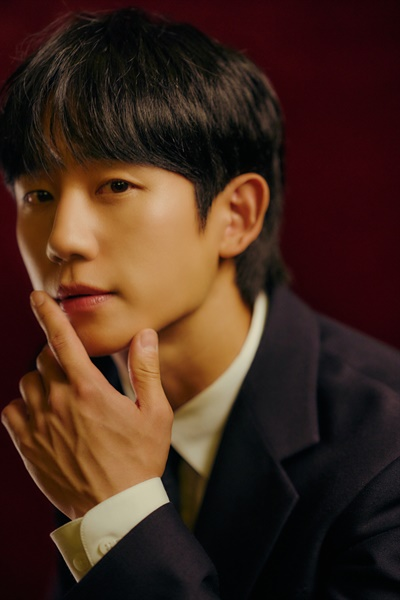
The action scenes, which are a hallmark of Ryu Seung Wan's films, were not a major issue. Jung Hae In remarked, "I wondered if there's anyone who directs action with the same safety that also highlights each actor's characteristics as director Ryu does."
"In other performances, the director is quite open [to changes or improvisations], but for action scenes, he creates a thorough storyboard and gives clear instructions. I think he is excellent at analyzing actors. This time, I truly experienced the essence of action acting (laughs). It feels like a choreographed performance that is not done alone but together. If one person overdoes it and tries too hard, it could hurt the others. It was an experience of performing a choreographed performance based on mutual trust. I was so immersed that I ran too quickly during the Namsan stairs scene. I was faster than I thought (laughs). The camera director had to carry equipment that weighed 20kg, so it was really hard. The action on the stairs was tough and especially the final rooftop action was challenging. The weather was extremely cold, and my body felt stiff. I was worried that if I got scared, I might get injured, so I tried to trust and push myself even harder." He added, "What was more difficult than the action was the cold. Doing action scenes in the middle of winter wasn't easy. My body stiffened, which made it frustrating at times, but fortunately, I think it came out well on screen."
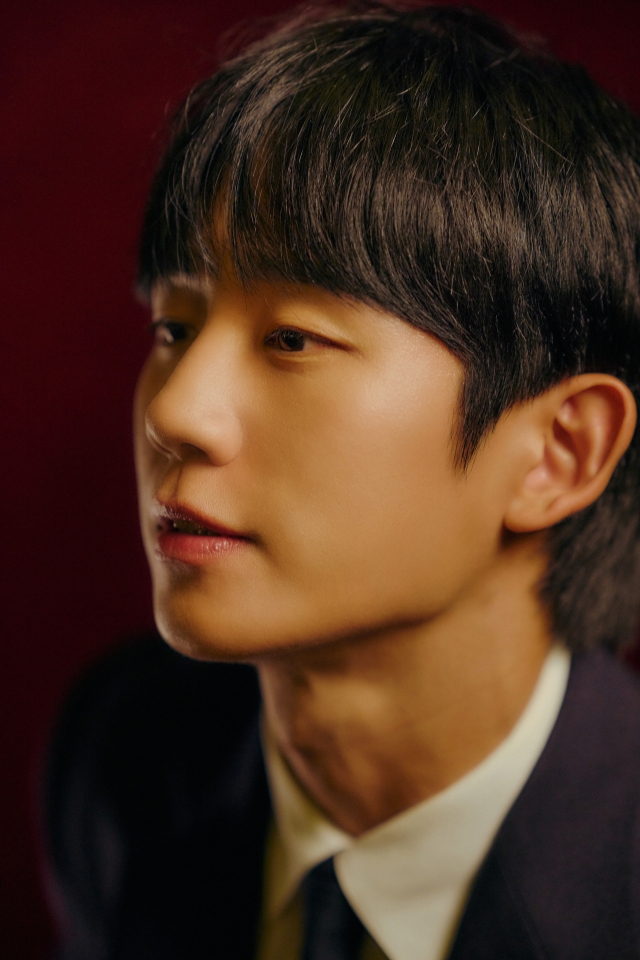
Talking about his Cannes experience, the D.P. actor said, "I have something to clarify." "I was on the set of Love Next Door when the director called me. The director sounded excited. He asked if I could go with him. However, I was in the middle of filming and on set. Since there were staff members around, I couldn't speak loudly, so I answered calmly. I think the director might have thought, 'Is it just me who’s excited?' or 'Is it just me who’s thrilled?' It was a misunderstanding."
He continued, "Because I was on set that day, I had to remain composed. On my way home, I kept talking with my manager in the car, asking questions like, 'Is this real?' and 'Are we really going?' Even on the day of departure, I couldn't quite believe it."
Jung Hae In added, "When we arrived, I thought, 'So this is Cannes.' It was my first time there. But the moment I stepped onto the red carpet, my mind went blank. With my years in the industry, I shouldn't have been nervous, but Cannes was different. I think I was more nervous because it felt like representing our country's film at a prestigious international film festival. To put it in an exaggerated way, it felt like being selected for the national team. I could understand what athletes might feel. I felt proud, but also burdened and nervous."
Jung Hae In also took his mother to the Cannes Film Festival for the movie's premiere. He shared, "It's Cannes after all. Since you never know when you might go again in your acting career, I told my mother that I had been invited. My mother said, 'I want to go too.' But then I thought, if my mother goes, Hwang Jung Min sunbae, director Ryu, and the production company’s CEO might feel the need to pay attention to her. So, I told my mother that I would just go alone." He continued, "But after thinking about it for a day, I realized I don't know when [or if] I'll go to Cannes again, and there's no guarantee that my mother will be as healthy as she is now by the time the opportunity reappears. So, I decided it would be better to take her with me."
"Looking back, bringing my mother to that event was probably the best thing I did this year. My mother said it was the happiest gift of her life and an unforgettable memory," he said with pride.
"Everyone gave us a standing ovation at Cannes, but my mother was the only one sitting among the crowd. She said she felt like her legs would give out if she stood up. I remember turning my head away right away because I felt like crying when I saw her expression. It was an emotional moment, and from my mother's perspective, she didn't really know how I was filming. When I'd tell her, 'It was tough, I was filming in the rain,' she would just think, 'Oh, okay.' But I think watching the movie helped her put the pieces together. I think she was emotional and felt sorry for me. I purposely avoided looking at her because I felt like I would burst into tears if I saw her. She said, 'When you came home after filming and said it was tough, I didn't think much of it at the time, but now I realize how hard it must have been.' She cried because she felt sorry for me. She said a lot of kind things afterwards. She told me, 'You worked hard, you've been through a lot, you did an excellent job, I'm proud of you.' She didn't give any specific feedback on my acting, just that she was proud and glad I did well, and that she was happy with my effort."
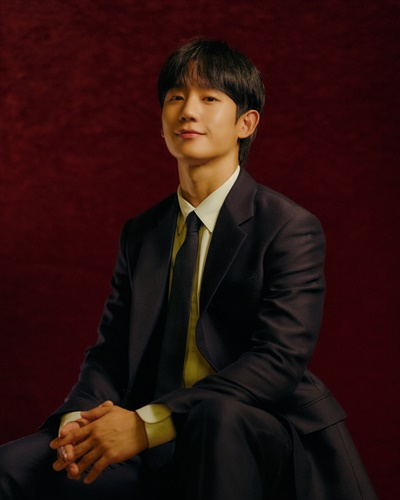
When asked whether he usually checks people's comments and reactions, Jung Ha In responded, "I do. Since I am someone who works in the domain of popular art, I think it's right to catch the public's reactions." "I believe it's important to understand what people think of me and what they want."
He continued, "This is something that not only I, but also my company, should be doing together [with me]. If you're not paying attention to such reactions, I think you lean more toward being a pure artist [who focuses solely on their personal, artistic vision without regard for commercial or popular considerations]. Of course, there are also negative reactions. It's impossible not to feel hurt when you see malicious comments. But if you get hurt, then you get hurt. Then you can heal."
When asked how he heals, he said, "It's the people who support and love me. There are people who hate me for no reason and don't care about me, but there are also those who love me unconditionally. When I see negative reactions, I remind myself not to forget about the fans, family, and others who love me."
Jung Hae In added, "I think it's a process of learning how to protect myself." "I believe that I must humbly accept both the audience's needs and their criticism."
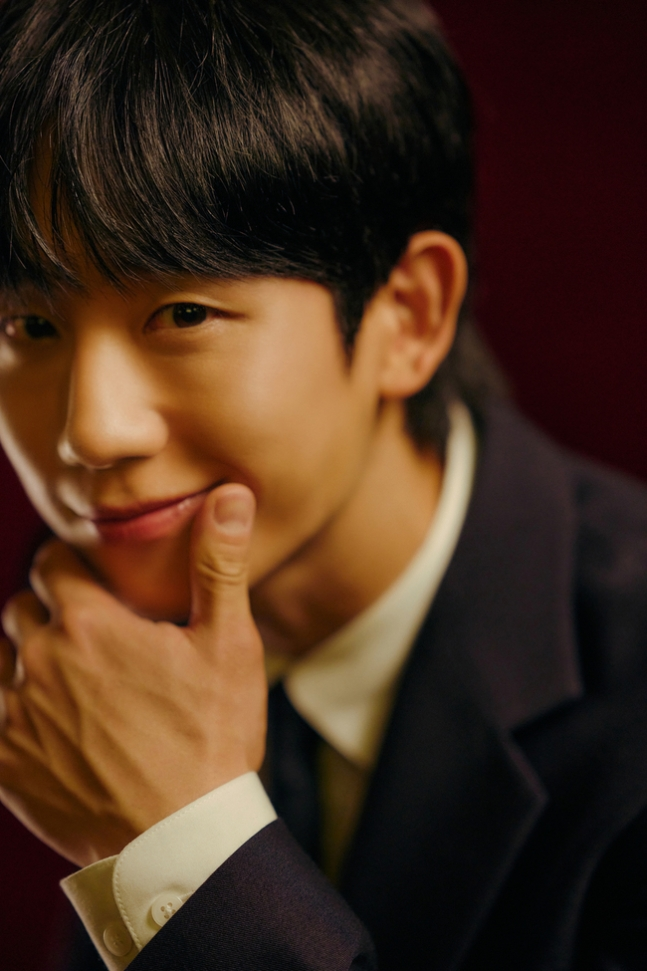
Regarding working with Hwang Jung Min, Jung Hae In said, "It felt like watching an incredible performance from the front row." "Actors pour their everything into their own scenes, and sometimes pull back in their co-actors' scenes. But Hwang Jung Min sunbae was giving his all, even when he wasn't on camera. Watching that made me reflect a lot on myself. Despite the fact that he is a senior with far more acting experience, I was deeply moved by his passion. I thought to myself, 'If I act for over 30 years, I want to be like that when working with my juniors in the future.' There were always moments when I felt so grateful."
Regarding Hwang Jung Min's comment that Jung Hae In's casting in I, the Executioner was a 'lucky pick,' [meaning the crew was lucky to get him on the K-movie] he said, "I'm really grateful that he said that. It seems like Hwang sunbae wants to push that phrase." He also said, "Sunbae and I have something in common — we both feel uncomfortable when we're complimented. If sunbae keeps complimenting me like this, I might end up with a lot of praise stories as well," adding, "Since I was playing a villain, I couldn't really lighten the mood on set. Hwang Jung Min sunbae was the one who took responsibility for keeping the atmosphere lively most of the time."
Jung Hae In continued, "Through this villain role in the movie, I feel like I might end up getting hit hard, and I have mixed feelings about it."
Lastly, the actor shared his honest thoughts about the potential box-office success of I, the Executioner, saying, "There aren't many Korean movies [releasing] right now, and I find that really unfortunate. It's so great when Korean films do well and various films compete and grow together. If you don't have high expectations, you'll be less disappointed. But if you expect too much, it hurts more [if things don't go well]. I think if we at least surpass the break-even point, it'll feel like everyone's hard work was worth it. For my own well-being, I think it's better not to set my expectations too high."


